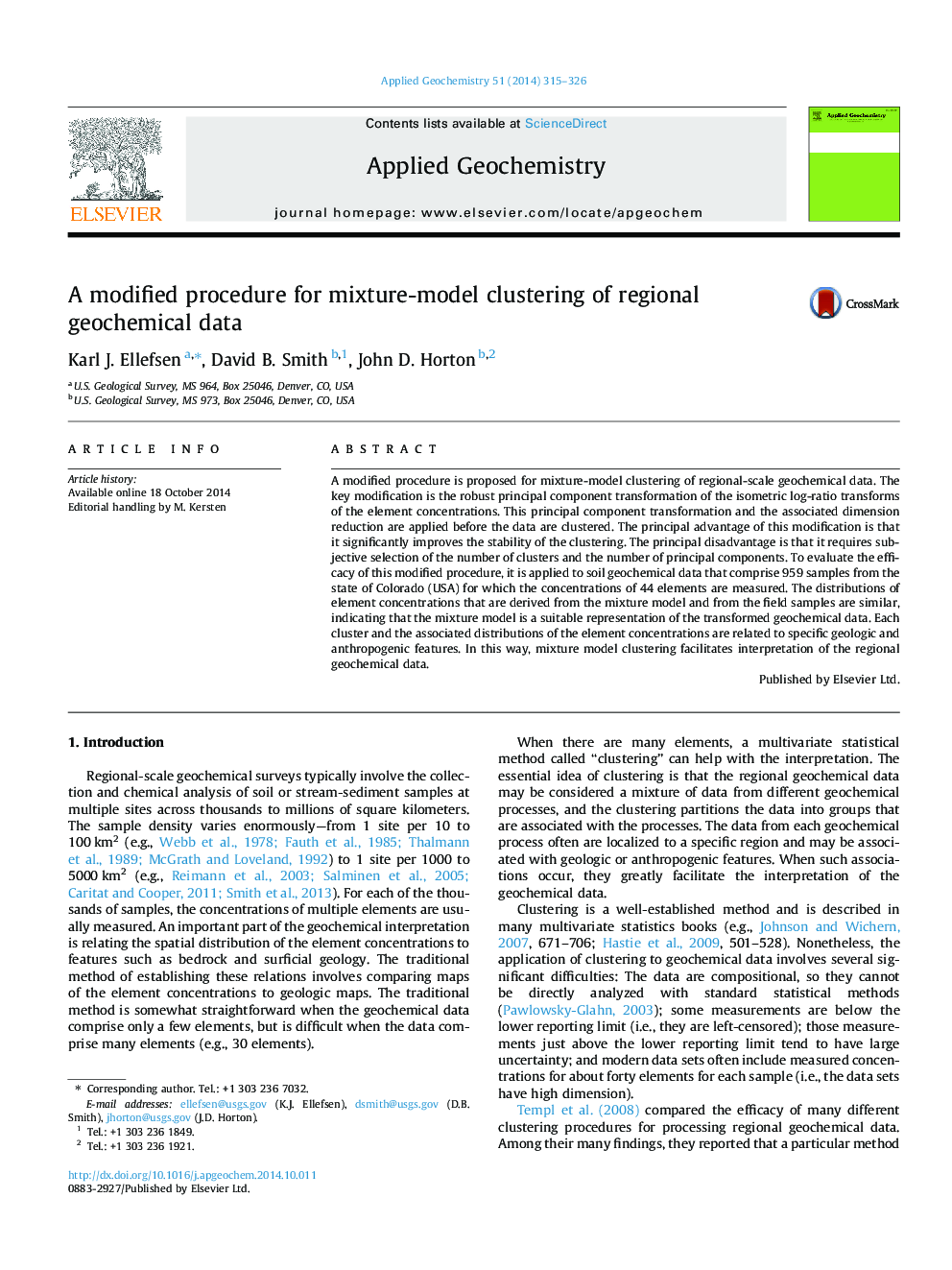| Article ID | Journal | Published Year | Pages | File Type |
|---|---|---|---|---|
| 6335128 | Applied Geochemistry | 2014 | 12 Pages |
Abstract
A modified procedure is proposed for mixture-model clustering of regional-scale geochemical data. The key modification is the robust principal component transformation of the isometric log-ratio transforms of the element concentrations. This principal component transformation and the associated dimension reduction are applied before the data are clustered. The principal advantage of this modification is that it significantly improves the stability of the clustering. The principal disadvantage is that it requires subjective selection of the number of clusters and the number of principal components. To evaluate the efficacy of this modified procedure, it is applied to soil geochemical data that comprise 959 samples from the state of Colorado (USA) for which the concentrations of 44 elements are measured. The distributions of element concentrations that are derived from the mixture model and from the field samples are similar, indicating that the mixture model is a suitable representation of the transformed geochemical data. Each cluster and the associated distributions of the element concentrations are related to specific geologic and anthropogenic features. In this way, mixture model clustering facilitates interpretation of the regional geochemical data.
Related Topics
Physical Sciences and Engineering
Earth and Planetary Sciences
Geochemistry and Petrology
Authors
Karl J. Ellefsen, David B. Smith, John D. Horton,
